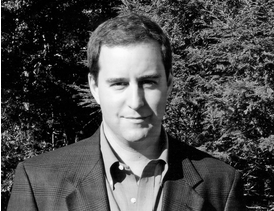Ken Moskow
(spook) | |
|---|---|
 | |
| Born | Feb. 18, 1960, |
| Died | September 19, 2008 (Age 48) Mount Kilimanjaro, Kenya |
Cause of death | altitude sickness |
| Nationality | US |
| Alma mater | Harvard University, John F. Kennedy School of Government |
| Parents | • Michael B. Moskow • Donna Melnick |
| Member of | Council on Foreign Relations/Historical Members |
| Interests | counterterrorism |
Kenneth A. Moskow was an American intelligence officer. For most of his professional life, Moskow worked in the Clandestine Service of the Central Intelligence Agency, first as an undercover operations officer in southern Europe and the eastern Mediterranean and later in senior positions at the Counterterrorism Center and as a field station chief.[1]
Contents
Education
He attended Harvard University, graduating in 1983 with a bachelor’s degree in history. In college he boxed in the Golden Gloves and rowed freshman crew, competing against his twin brother Keith, who was at Dartmouth. After college he applied and was accepted to law school, but decided to join the CIA instead. His father was a Boston real estate developer, his twin brother an architect[2][3].
Career
He worked for the CIA as an undercover operative, at first under diplomatic cover. He became an expert on the Soviets with a focus on international terrorism, and his work took him to Spain, Cyprus, Egypt, Israel, Lebanon and Syria.[1]
In 1990 at the age of 30 and with the end of the Cold War, he - officially - left the CIA, enrolling in the Harvard Kennedy School of Government, where he obtained his master’s degree in 1991. Following the Kennedy School he established the American Venture Corporation, doing real estate development projects in Central America, Mexico, as well as Boston.[4]
“In 2008, when Kenneth Moskow died in a mountain climbing accident, many of his former classmates in the midcareer program at Harvard’s John F. Kennedy School of Government were startled to learn from the obituaries that he had been a top CIA spy. He had told them, and his professors, that he worked for the State Department — it was the same cover he used on assignment in Spain and Cyprus — and the school’s photo roster listed him that way. The pretense likely helped him cultivate foreign classmates, including ex–Guatemalan defense minister Héctor Gramajo and José María Figueres, who was soon to become president of Costa Rica.”
Daniel Golden (October 14, 2017) [5]
In a 2017 article, Daniel Golden hinted at how spooks like Moskow worked: "The CIA and Harvard caution the clandestine officers against formally recruiting classmates. But nothing prevents them from grooming potential informants, perhaps over a beer at a Harvard Square bar or at one of the school’s many social functions. After graduation a CIA officer can renew the acquaintance overseas or at a Harvard reunion, and tap his old buddy for information—still without necessarily disclosing his true employer.[6]"
After Sept. 11, 2001, he decided to offically re-enlist with the CIA, moving first to Washington and then to Paris with his family. In 2006 they returned to Boston, where he restarted his real estate development company, presumably still under cover.
Death
Moskow died unexpectedly at the summit of Mount Kilimanjaro on September 19, 2008, at age 48; the cause of death is believed to be due to altitude sickness.
Senater Harry Reid of Nevada, the majority leader in the United States Senate, wrote to his children: "All those who served with your father will remember his service with gratitude. But those engaged in the gathering of intelligence know that their work must remain out of view and mind of their fellow countrymen. Hundreds of millions of Americans may never know the story of your father’s service, but we are a safer people and stronger nation for it."[1]
He left a bequest to the Council on Foreign Relations financing a series of lectures on "Homeland Security and Counterterrorism".[4]
References
- ↑ a b c https://vineyardgazette.com/obituaries/2008/10/16/kenneth-moskow-48-dies-kilimanjaro-peak
- ↑ https://www.linkedin.com/in/keith-moskow-faia-56b369165
- ↑ https://www.dignitymemorial.com/obituaries/brookline-ma/michael-moskow-10858981
- ↑ a b https://www.cfr.org/kenneth-moskow-memorial-lecture
- ↑ https://www.townandcountrymag.com/society/tradition/a12814064/spy-school-daniel-golden-fbi-cia-recruit-at-american-colleges/
- ↑ https://www.townandcountrymag.com/society/tradition/a12814064/spy-school-daniel-golden-fbi-cia-recruit-at-american-colleges/